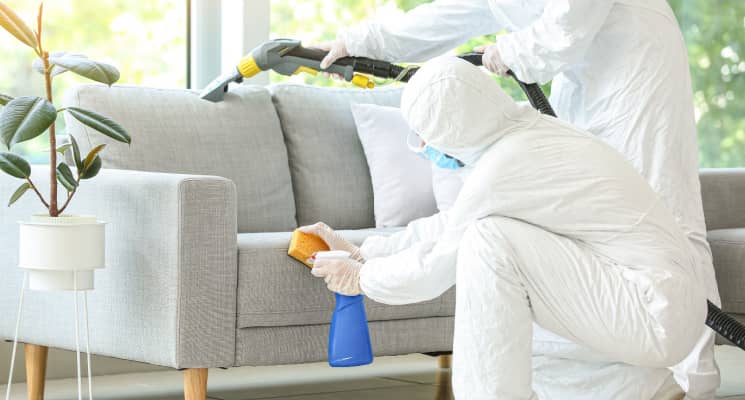When it comes to renting a home, one of the questions that often arises is who is responsible for pest control when renting? This inquiry is critical as it affects both tenants and landlords. Understanding the rights and responsibilities concerning pest control can help avoid misunderstandings and potential conflicts.
This article delves deep into the responsibilities surrounding pest control in rental situations, from the perspectives of both tenants and landlords. We will explore legal frameworks, tenants' rights, and preventive measures to ensure a pest-free environment.

The Legal Framework of Pest Control in Rentals
Before getting into the specifics of responsibilities, it is essential to understand the legal framework that governs pest control in rental properties. Landlords are typically required to maintain habitable living conditions, which often include ensuring that units are free of pests. Various laws apply depending on the location, including the Fair Housing Act and specific state laws targeted at tenant rights.

Responsibilities of Landlords
Generally, landlords are required to provide a safe and habitable home. This responsibility often extends to pest control. Here are the key responsibilities:
- Timely Pest Control: If there is evidence of a pest infestation in a rental property, it is usually the landlord's responsibility to hire a pest control service to address the issue.
- Preventive Measures: Landlords should take proactive measures to prevent infestations by maintaining the property, sealing cracks, and addressing any deficiencies.
- Legal Compliance: They must comply with all local and state pest control laws to ensure the property remains habitable.

Responsibilities of Tenants
While landlords have clear responsibilities, tenants also play a role in maintaining pest-free living conditions. Heres what tenants should keep in mind:
- Reporting Issues Promptly: Tenants should immediately report any signs of pests to their landlord to prevent further infestations.
- Maintaining Cleanliness: Keeping the living area clean and free of food debris can significantly reduce the likelihood of pests.
- Following Protocols: If pest control measures require tenants to vacate the premises, they should comply to ensure effective treatment.

Signs of Infestation
Recognizing the signs of a pest infestation is crucial for both landlords and tenants. Here are some common signs:
- Droppings or urine stains
- Gnaw marks or damaged furniture
- Noises within walls or ceilings
- Nests or burrows
Resolving Tenant-Landlord Conflicts
Disputes over pest control can sometimes occur between tenants and landlords. Clear communication is vital. Here are steps to resolve these issues:
- Documentation: Both parties should keep detailed records of any infestation and actions taken.
- Communication: Open dialogue can help in understanding each other's viewpoints and responsibilities.
- Negotiation: If necessary, negotiate who will cover the costs for pest control.
Preventive Measures to Avoid Pest Infestations
Both tenants and landlords can engage in preventive measures to keep properties pest-free:
- Regular inspections of the property
- Proper waste management practices
- Education about common pests and how to avoid them
Frequently Asked Questions
1. What should I do if I find pests in my rented home?
As a tenant, report the issue to your landlord immediately. They are likely responsible for addressing the problem.
2. Can I hire my own pest control service as a tenant?
You can, but it is crucial to inform your landlord about the situation first, as they may prefer to handle it themselves.
3. What if my landlord refuses to take action against pests?
If your landlord is unresponsive, you may need to contact local health authorities or seek legal advice to understand your rights.
Conclusion
Understanding who is responsible for pest control when renting is crucial for maintaining a healthy living environment. Everyone has a role in keeping properties free from pests, and clear communication can help prevent conflicts. Remember, early detection and timely action are the keys to effective pest management. For more information, refer to the Comprehensive Guide to Pest Control.
As an Amazon Associate, I earn from qualifying purchases.
